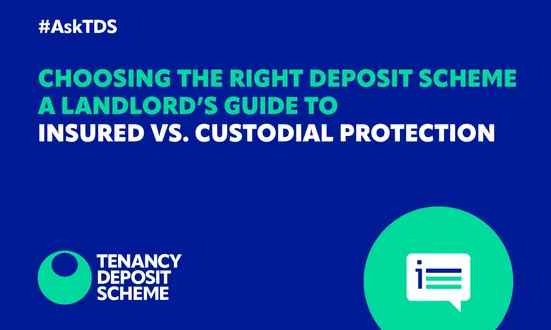If an emergency arises at a rental property that you manage, it’s important you respond rapidly and deal with it effectively, not least to minimise the impact on the property itself and the tenants. Emergency situations are always unwelcome, from flooding to fires and other events that cause property damage.
In this article, The Letting Partnership provides information and advice to help you feel more confident in the actions you should take if an emergency arises.
How Should Letting Agents Deal with Emergencies in Rental Properties?
Firstly, it’s crucial that when you take on a new property that you ask the landlord about any insurances they may already have in place. You should record each insurer’s name and details, including emergency numbers, policy number, and any authorised contractors. For example, there may be approved contractors (plumbers, heating engineers, locksmiths etc) or a helpline that a tenant, or you as the agent, should call in the first instance to ensure the insurance is not invalidated if there is an emergency callout required. This information can be compiled into a welcome pack for the tenant and kept on file by you.
Let’s now look at some potential scenarios and effective solutions:
A Tenant Has Lost Their Keys
To start with, your inventory should state how many sets of keys and security devices (e.g. electronic key fobs) were provided to the tenants at the start of the tenancy, and that all locks around the property are in good working order (assuming that they are!)
If a tenant loses or damages their keys they must take responsibility for the cost to replace them. While the tenant may think only their key must be replaced, a lost key poses a potential security risk and may impact the landlord’s insurance.
Tenants should replace all lost keys and security devices at their own expense, and this should be outlined in the tenancy agreement.
As the letting agent ,you may be willing to let the tenants into the rental property if they need immediate access, but you are not obligated to do so. If the tenant discovers their keys are lost outside of office hours, and if you are unable to assist, they will need to telephone a locksmith and pay the costs themselves. If the locks need to be changed, for example if the key is broken in the lock, the tenant must pay the locksmiths fee, as well as the cost of the new lock and new keys for themselves, the agency, and the landlord.
It is important that you ensure the tenant is aware of who to call in the event of this happening. If the landlord’s insurance covers replacement locks and lost keys, there will almost certainly be a 24-hour response line for them to contact with this service.
A Tenant Has Reported Flooding in A Rental Property
The property could be flooded by rainwater entering the property from outside, perhaps through a damaged roof, or from extreme weather conditions causing water to enter through doors and windows. However, more commonly, flooding is caused by an internal water escape or leak. This may occur in winter due to frozen pipes that crack as the ice melts, worn pipework joints, or because a tenant allows a bath or sink to overflow.
No matter the cause of the flood, you should advise the tenants to immediately switch off the supply of water at the stopcock. As the letting agent it is your responsibility to contact the relevant emergency contractors to start repair work and advise the landlord and tenants accordingly.
If the flood was not caused by the tenants, the landlord will be responsible for correcting any structural damage to the property and re-instating any damaged appliances, carpets and furniture supplied with the property. In effect, the landlord must reinstate the property to its previous state before the damage. Tenants are responsible for their personal belongings and should have adequate contents insurance to cover this.
A Rental Property Has Suffered Fire Damage
It is essential to make sure tenants are aware that, should they discover a fire of any size they must evacuate the property immediately and telephone the fire services before informing you of the situation.
In cases of accidental fire, the tenants will be responsible for replacing personal belongings and the landlord will be responsible for covering property repairs.
If the tenants are found to have caused the fire, the landlord has the right to ask them to cover the costs of repairs.
Where the fire occurred due to the landlord’s negligence, they will bear responsibility for the cost of repairs. It is possible the landlord may need to pay out for any damage incurred to the tenant in terms of their personal belongings.
How to Deal with An Uninhabitable Property Due to Fire, Flood or Other Extensive Damage
Emergencies such as flood, fire or other events that cause extensive damage to a property making it uninhabitable, must be dealt with responsibly and efficiently. But if a tenant has no option but to move out, where does the responsibility lie for the associated costs? For example, who pays for temporary accommodation?
A tenant may need to vacate a property if it becomes uninhabitable. In this case, the landlord is responsible for the cost of alternative, temporary accommodation for the tenant while repairs are arranged. You should advise the landlord of these options:
- The tenant can continue to pay their usual rent (for the uninhabitable property) and the landlord will supply alternative accommodation, possibly in another property they own if available.
- The tenant stops paying rent and instead use the rent money to pay for alternative accommodation in a B&B, hotel or with family or friends.
If the latter option is chosen, the landlord will be required to refund any rent paid in advance for the period when the tenant was unable to live in the property. They must also consider contributing towards food and laundry costs if the tenant is experiencing high expenditure due to staying in a hotel or B&B without self-catering facilities, however this is not a legal requirement.
The landlord should be able to claim on insurance, which is why it is imperative that the correct insurance is in place to deal with such emergencies.
In cases where the damage is severe and the property cannot be repaired, or the tenant decides they do not wish to return to the property, they will need to negotiate with the landlord to end the tenancy. If the landlord ends the tenancy, the usual procedure of serving notice applies.
How Do I Prepare for Emergencies in A Rental Property?
No letting agent expects an emergency to arise in a rental property they manage, but it can happen so it’s best to be prepared. Here are some key steps you can take to help you deal with such situations:
- When taking on a new property carry out checks to make sure it is generally safe to begin with i.e. any furniture is fire-safe, electrical appliances and wiring are checked and there is an EICR, and the property complies with Smoke and Carbon Monoxide Alarm Regulations as a minimum
- Find out and record all insurance information from the landlord, including policy numbers, emergency telephone numbers, and authorised contractors
- Ensure your landlord client is properly covered with a fully comprehensive insurance policy suitable for a rented property.
- Provide new tenants with an information pack for the property which clearly shows who to call and when in the event of an emergency.
- Emphasise the importance to tenants of acting immediately in the event of an emergency.
- This article is intended as a guide only and does not constitute legal advice. If in doubt seek professional legal advice.
- Emphasise the importance to tenants of acting immediately in the event of an emergency.
This article is intended as a guide only and does not constitute legal advice. If in doubt seek professional legal advice.
Originally published on The Letting Partnership
Not with TDS?
TDS is dedicated to supporting the PRS with tech innovations, strategic partnerships and guidance for landlords, letting agents, and tenants.
If you have not yet joined the free TDS Custodial deposit protection scheme or the Insured protection scheme, it’s simple to switch!
The views expressed in this content are solely those of the author alone and do not necessarily represent the views of TDS, its officers, or employees.
Other news stories


